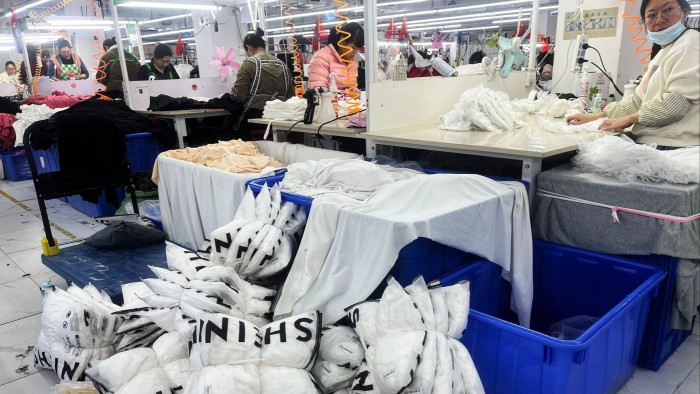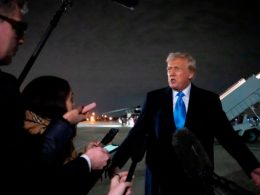Unlock the Editor’s Digest for free
Roula Khalaf, Editor of the FT, selects her favourite stories in this weekly newsletter.
Shein is exploring ways to restructure its US business in the event the Trump administration sticks with punitive tariffs on Chinese imports, a move that could jeopardise its London float.
The fast-fashion company’s US business — which accounts for about one-third of its $38bn in annual revenue — will come under heavy strain when a tax exemption known as “de minimis” is closed this week.
That will leave Shein, which ships orders directly from Chinese warehouses to shoppers’ homes, paying tariffs of 120 per cent on the cheap clothes it sells to customers in the US, its biggest market.
Two people with knowledge of the company’s deliberations said one workaround under consideration was to divert production for the US market to countries outside China. While the majority of Shein’s supply chain is located in China, the company has some manufacturing capacity in other countries, including Brazil and India.
However, its supply chain capacity in these countries is limited and it is doubtful it would ever reach a scale to match Shein’s operations in China, where it has a network of 7,000 suppliers. Shifting production elsewhere would result in a significant reduction of supply into Shein’s US business, according to industry insiders.
Any effort to cope with President Donald Trump’s tariffs by moving manufacturing out of China might also attract the ire of the government.
China’s commerce ministry has been discouraging Shein and other exporters from moving supply chains to other countries, according to Bloomberg. Shein has previously said it is not shifting supply chain capacity out of China.
Sources familiar with Shein’s thinking said no decisions on any US restructuring had been taken at board level. Despite the risk to its sales, Shein had the benefit of a healthy balance sheet thanks to its asset-light business model, they added.
If tariffs did inflict lasting damage on Shein’s US business the company would be forced to push back its widely anticipated London IPO, initially scheduled for the first half of this year.
“Internally we are all focused on figuring out how to deal with the tariff situation at the moment. Before we have clarity on that, no one can even start to think about the IPO,” said one executive who declined to be named due to the sensitivity of the issues. Shein declined to comment.
Shein has increased prices by as much as 377 per cent on some products in the US — such as hair ties — ahead of the implementation of higher tariffs. However, across its core business of apparel most price increases have been of a far lower magnitude.
Shein’s executives are closely monitoring geopolitical developments and remain hopeful that negotiations between Washington and Beijing could bring tariffs down to an acceptable level.
The rapid growth of Shein, led by its co-founder Sky Xu, has been enabled by import duty exemptions on low value parcels arriving in the US and Europe. The EU and the UK have both begun preparations to potentially end their respective low value import schemes.
The US is replacing its “de minimis” exemption — which applied to shipments worth less than $800 — with a 120 per cent tariff, or a flat $200 fee, depending on how goods are delivered. The changes will apply to shipments from China and Hong Kong.
In April, Shein’s US revenues were strong as customers bought goods in anticipation of the changes, one insider said. Another person close to Shein said it was confident it could withstand the changes to the US de minimis rules.
Additional reporting by Eleanor Olcott in Beijing
Source link









